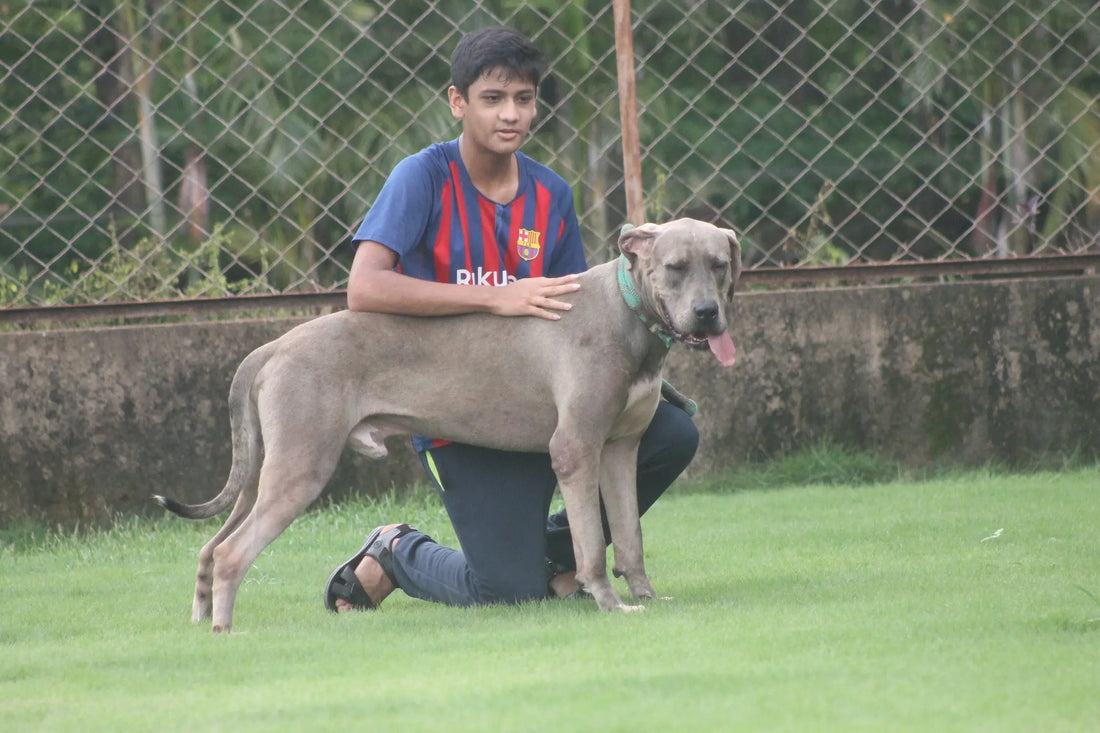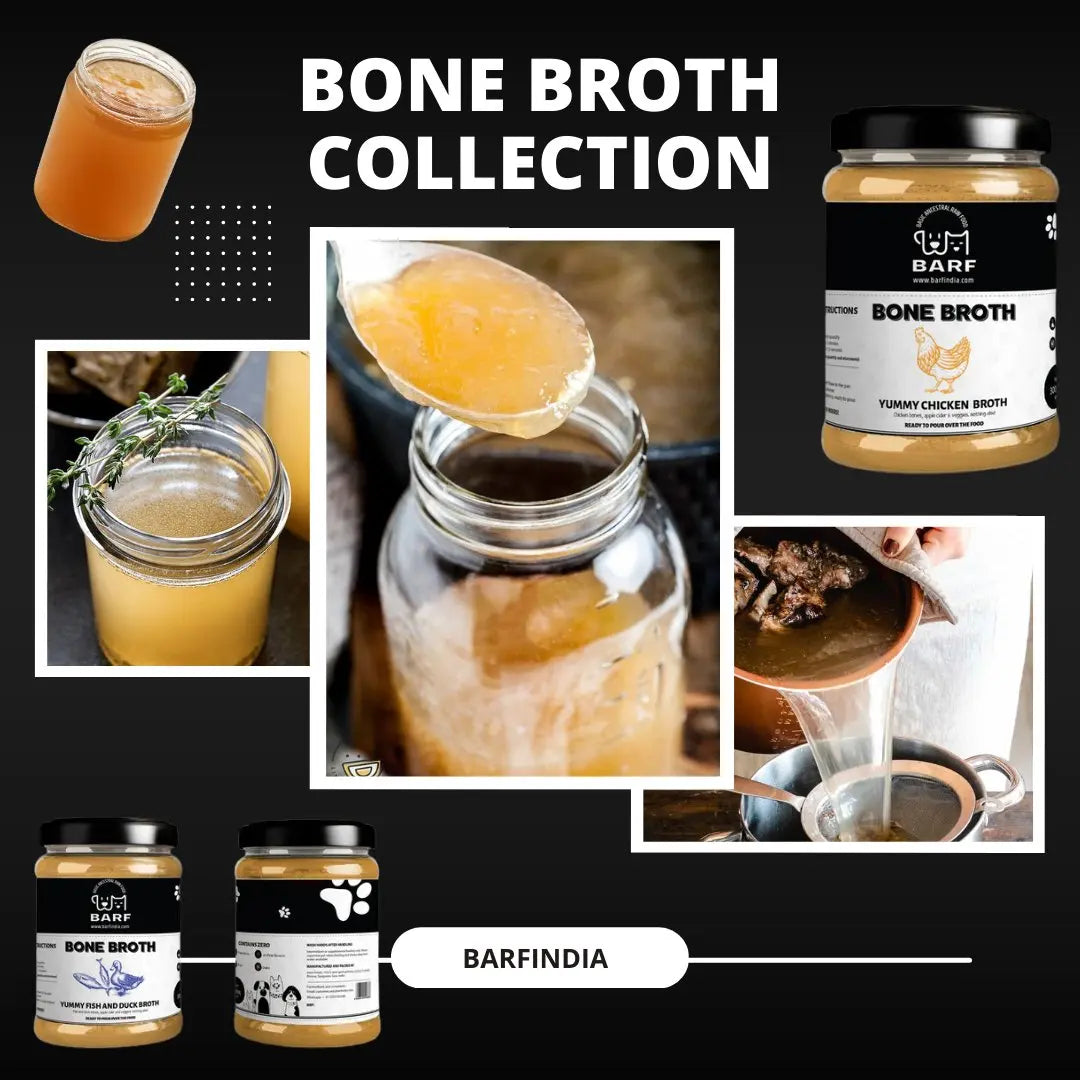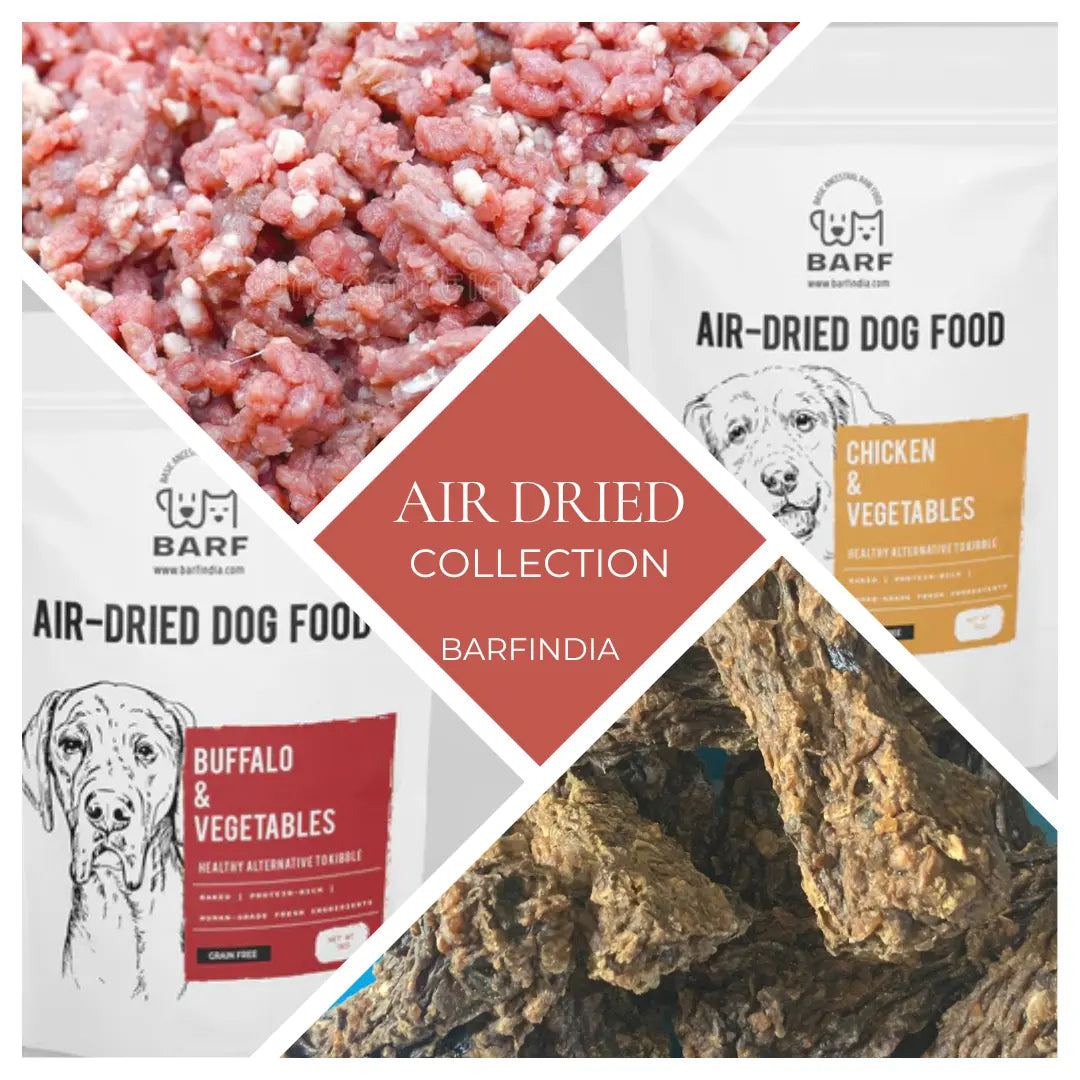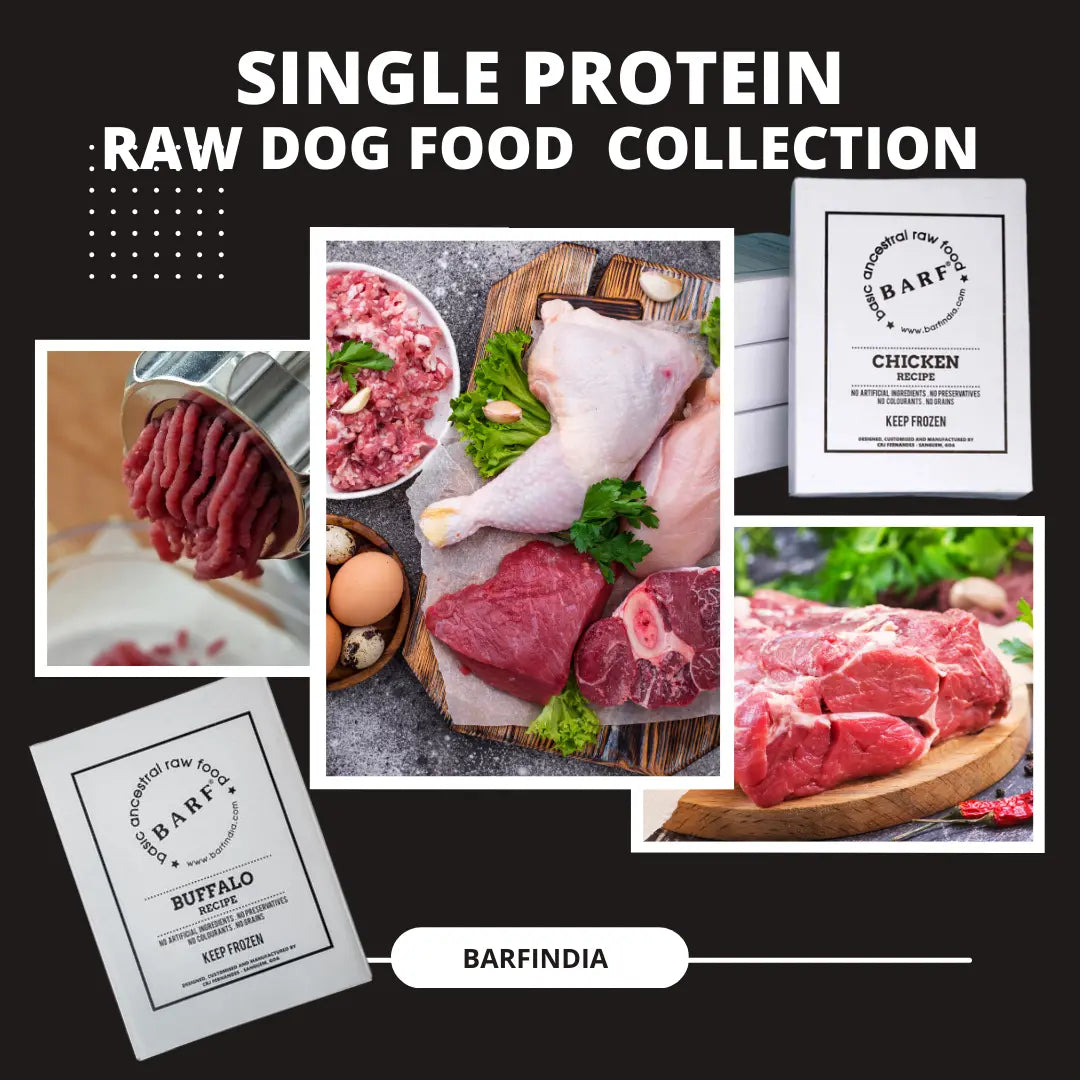
Summer and Raw Feeding
Nivedita FernandesRaw Feeding Your Dog in Summer: A Nutritious and Cooling Choice
Introduction:
As summer approaches, we're all eager to enjoy the warm weather, indulge in outdoor activities, and relish delicious meals. While we focus on our own diets, it's equally important to consider the well-being of our furry friends, especially when it comes to their nutrition. Feeding your dog raw food during the summer months can be a fantastic choice, providing them with essential nutrients and keeping them refreshed. In this blog post, we will explore the benefits and considerations of feeding your dog a raw diet during summer.
-
Fresh and Natural Ingredients:
One of the primary advantages of a raw food diet for dogs is the use of fresh and natural ingredients. By opting for high-quality meats, fruits, and vegetables, you can ensure your dog receives a nutrient-rich diet. Fresh ingredients are often packed with vitamins, minerals, and enzymes that can boost your dog's overall health and well-being. Moreover, raw food diets typically exclude processed additives and preservatives, allowing your pet to consume a cleaner and more natural diet.
-
Hydration and Moisture:
During the hot summer months, dehydration is a common concern for both humans and animals. Raw food diets can help address this issue as they naturally contain higher moisture content than commercial kibble. This increased hydration can support your dog's overall hydration levels, contributing to better digestion, improved skin health, and a reduced risk of urinary tract problems. By providing your dog with a raw diet, you can ensure they stay adequately hydrated, even during the hottest days.
-
Improved Digestion:
Raw food diets are known to improve digestion in dogs. The natural enzymes present in raw meat, fruits, and vegetables aid in breaking down food more efficiently, leading to better nutrient absorption. As a result, your dog may experience reduced bloating, firmer stools, and improved overall gut health. This can be particularly beneficial during the summer when dogs may be more susceptible to digestive issues due to changes in activity levels and exposure to new environments.
-
Enhanced Energy and Vitality:
Proper nutrition plays a crucial role in maintaining your dog's energy levels and vitality, especially during the active summer season. Raw food diets provide dogs with a rich source of proteins, healthy fats, and essential nutrients. These elements support muscle development, promote healthy skin and coat, and contribute to increased energy levels. Feeding your dog raw food can help ensure they have the stamina and vitality to enjoy long walks, play sessions, and outdoor adventures.
Considerations for Feeding Raw Food During Summer:
While feeding your dog a raw food diet offers numerous benefits, it's essential to consider a few factors to ensure their safety and well-being:
-
Food Safety: Handle raw ingredients with care, ensuring proper hygiene during preparation and storage to prevent bacterial contamination.
-
Balanced Diet: Consult with a veterinarian or a canine nutritionist to ensure your dog's raw diet is balanced and meets their specific nutritional needs.
-
Transition Period: Introduce the raw food gradually, allowing your dog's digestive system to adapt. Start by mixing small amounts with their regular diet and gradually increase the proportion of raw food over time.
-
Individual Requirements: Consider your dog's age, breed, size, and any pre-existing health conditions when determining the appropriate portion sizes and types of raw food.
- Water: Always keep fresh drinking water readily available during all times of the day.
Conclusion:
Feeding your dog a raw food diet during summer can provide them with a wholesome and refreshing diet that supports their overall health and well-being. The benefits of fresh and natural ingredients, increased hydration, improved digestion, and enhanced energy levels make raw food an appealing option for pet owners. However, it's crucial to exercise caution, follow food safety guidelines, and consult with professionals to ensure your dog receives a balanced diet tailored to their individual



